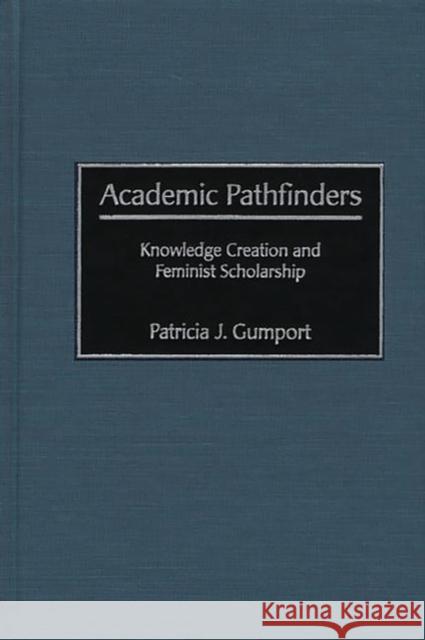Academic Pathfinders: Knowledge Creation and Feminist Scholarship » książka
Academic Pathfinders: Knowledge Creation and Feminist Scholarship
ISBN-13: 9780313320965 / Angielski / Twarda / 2002 / 224 str.
From the 1960s to the 1980s, a range of academic possibilities for women developed, as their career histories and intellectual biographies reveal. Some women sought to generate a new knowledge specialty in their disciplines, often explicitly defying admonishments that the subject matter was an oxymoron. Others pursued academic paths that disregarded these new opportunities and developments. Together their accounts portray how feminist scholarship emerged and was facilitated by historically specific conditions: a critical mass of like-minded women, a national political movement, an abundance of financial support for doctoral candidates, a tolerance from established faculty for students to pursue the margins of disciplinary scholarship, and an organizational capacity to add new academic categories for courses, programs, academic positions, and extra-departmental groups. That historical era has since been supplanted by feminist infighting and backlash, as well as more cost-conscious academic management practices, which have altered the academic landscape for knowledge creation.Analyzing the accounts of academic women during this era yields a conceptual framework for understanding how new knowledge is created on multiple levels--through personal reflection on life experiences, disciplinary legacies, local organizational contexts, and wider societal expectations.











